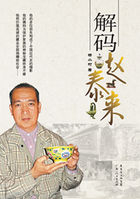He had one leg and arm in; but, at that stage of her toilet, to let him in was impossible, and there they stood, equally strong, firmly braced, she on one side of the door and he on the other. But the blacking he was determined she should have; so, gauging her probable position, with one desperate effort he squeezed in a little farther and, raising the bottle, he poured the contents on her head. The blacking went streaming down over her face, white robe, and person, and left her looking more like a bronze fury than one of Eve's most charming daughters. A yard or more of the carpet was ruined, the wallpaper and bedclothes spattered, and the poor victim was unfit to be seen for a week at least. Charley had a good excuse for his extreme measures, for, as we all by turn played our tricks on him, it was necessary to keep us in some fear of punishment. This was but one of the many outrageous pranks we perpetrated on each other. To see us a few hours later, all absorbed in an anti-slavery or temperance convention, or dressed in our best, in high discourse with the philosophers, one would never think we could have been guilty of such consummate follies. It was, however, but the natural reaction from the general serious trend of our thoughts.
It was in Peterboro, too, that I first met one who was then considered the most eloquent and impassioned orator on the anti-slavery platform, Henry B. Stanton. He had come over from Utica with Alvin Stewart's beautiful daughter, to whom report said he was engaged; but, as she soon after married Luther R. Marsh, there was a mistake somewhere. However, the rumor had its advantages. Regarding him as not in the matrimonial market, we were all much more free and easy in our manners with him than we would otherwise have been. A series of anti-slavery conventions was being held in Madison County, and there I had the pleasure of hearing him for the first time.
As I had a passion for oratory, I was deeply impressed with his power.
He was not so smooth and eloquent as Phillips, but he could make his audience both laugh and cry; the latter, Phillips himself said he never could do.
Mr. Stanton was then in his prime, a fine-looking, affable young man, with remarkable conversational talent, and was ten years my senior, with the advantage that that number of years necessarily gives.
Two carriage-loads of ladies and gentlemen drove off every morning, sometimes ten miles, to one of these conventions, returning late at night.
I shall never forget those charming drives over the hills in Madison County, the bright autumnal days, and the bewitching moonlight nights. The enthusiasm of the people in these great meetings, the thrilling oratory, and lucid arguments of the speakers, all conspired to make these days memorable as among the most charming in my life. It seemed to me that I never had so much happiness crowded into one short month. I had become interested in the anti-slavery and temperance questions, and was deeply impressed with the appeals and arguments. I felt a new inspiration in life and was enthused with new ideas of individual rights and the basic principles of government, for the anti-slavery platform was the best school the American people ever had on which to learn republican principles and ethics. These conventions and the discussions at my cousin's fireside I count among the great blessings of my life.
One morning, as we came out from breakfast, Mr. Stanton joined me on the piazza, where I was walking up and down enjoying the balmy air and the beauty of the foliage. "As we have no conventions," said he, "on hand, what do you say to a ride on horseback this morning?" I readily accepted the suggestion, ordered the horses, put on my habit, and away we went.
The roads were fine and we took a long ride. As we were returning home we stopped often to admire the scenery and, perchance, each other. When walking slowly through a beautiful grove, he laid his hand on the horn of the saddle and, to my surprise, made one of those charming revelations of human feeling which brave knights have always found eloquent words to utter, and to which fair ladies have always listened with mingled emotions of pleasure and astonishment.
One outcome of those glorious days of October, 1839, was a marriage, in Johnstown, the 10th day of May, 1840, and a voyage to the Old World.
Six weeks of that charming autumn, ending in the Indian summer with its peculiarly hazy atmosphere, I lingered in Peterboro. It seems in retrospect like a beautiful dream. A succession of guests was constantly coming and going, and I still remember the daily drives over those grand old hills crowned with trees now gorgeous in rich colors, the more charming because we knew the time was short before the cold winds of November would change all.















